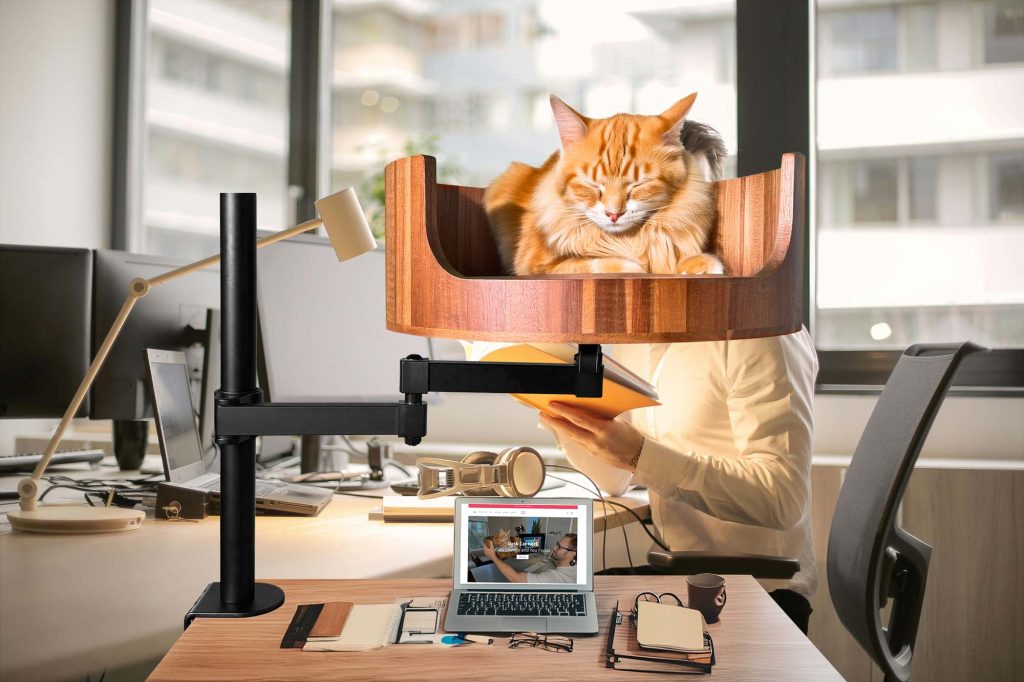It’s a common sight for dog owners – their beloved furry companions sniffing around the litter box and taking a quick snack from the forbidden treasure trove of cat poop. While this behavior may seem harmless or even amusing, there are potential risks involved that every pet owner should be aware of. In this article, we will delve into the reasons why dogs are drawn to cat feces, the potential health hazards associated with this behavior, and what steps can be taken to discourage it.
For some dogs, the allure of cat poop is simply irresistible due to the strong smell and appealing texture. However, ingesting cat poop can introduce harmful parasites and bacteria into a dog’s system, leading to a range of health issues such as diarrhea, vomiting, and even more serious conditions like pancreatitis. It’s important for dog owners to understand the risks associated with their pets’ behavior and take proactive measures to prevent them from indulging in this unsanitary habit. By implementing strategies such as keeping the litter box out of reach, training dogs to avoid it, or providing alternative sources of entertainment and mental stimulation, pet owners can help keep their furry friends safe and healthy.
1. Consuming cat feces can expose dogs to harmful bacteria and parasites that can lead to health issues.
2. The main risks of dogs eating cat poop include gastrointestinal upset, bacterial infections, and potential transmission of diseases.
3. To prevent dogs from eating cat poop, it is essential to keep litter boxes out of their reach and ensure they have a balanced diet.
4. Regular veterinary check-ups and deworming treatments can help mitigate the risks associated with dogs eating cat feces.
5. Understanding the dangers of this behavior can help pet owners take necessary precautions to safeguard their dogs’ health.
Health Risks of Eating Cat Poop
Eating cat poop can expose dogs to various health risks. Cats’ feces may contain parasites such as Toxoplasma gondii, which can be harmful to dogs if ingested. This parasite can cause symptoms such as diarrhea, vomiting, and lethargy in dogs. Additionally, bacteria such as E. coli and Salmonella can also be present in cat feces, posing a risk of bacterial infection to dogs. It is crucial to monitor your dog’s behavior and consult a veterinarian if you suspect they have eaten cat poop.
Behavioral Issues Linked to Eating Cat Poop
Some dogs develop a habit of eating cat poop, known as coprophagia, which can lead to behavioral issues. Dogs may be attracted to the smell or taste of cat feces, leading to repeated consumption. This behavior can be challenging to correct and may require training or behavioral modification techniques. In severe cases, coprophagia can indicate underlying health issues or nutritional deficiencies in dogs.
Preventive Measures to Avoid Dogs Eating Cat Poop
To prevent dogs from eating cat poop, pet owners can take several preventive measures. One approach is to keep litter boxes inaccessible to dogs by placing them in elevated areas or using barriers like baby gates. Regularly cleaning the litter box and disposing of cat feces promptly can also reduce the risk of dogs ingesting cat poop. Additionally, providing dogs with a balanced diet and regular exercise can help curb their desire to eat feces.
Consulting a Veterinarian for Concerns about Dog’s Health
If you have concerns about your dog eating cat poop or exhibiting symptoms of illness after ingestion, it is essential to consult a veterinarian promptly. A vet can assess your dog’s health, perform diagnostic tests if necessary, and recommend treatment options. Early intervention can help prevent potential health issues and ensure the well-being of your canine companion.
Frequently Asked Questions
Is it bad for dogs to eat cat poop?
Yes, it is not advised for dogs to eat cat poop. Cat feces can contain parasites and bacteria that can be harmful to dogs if ingested.
Why do dogs like eating cat poop?
Dogs are attracted to the smell and taste of cat poop because it contains protein and other nutrients that dogs may find appealing. However, this behavior is not safe and should be discouraged.
What are the risks of dogs eating cat poop?
The risks of dogs eating cat poop include potential exposure to parasites such as toxoplasmosis and giardia, as well as bacterial infections. Ingesting cat poop can also lead to gastrointestinal upset and other health issues in dogs.
How can I prevent my dog from eating cat poop?
To prevent your dog from eating cat poop, you can try to keep litter boxes out of reach or install a cat litter box cover that only allows cats to enter. You can also train your dog to avoid areas where cat poop is present and provide plenty of toys and mental stimulation as a distraction.
In conclusion, while it may not be completely preventable for dogs to eat cat poop, providing them with a Desk Cat Bed can greatly reduce the likelihood of this happening. With its elevated design, it creates a safe space for cats to rest and eliminates the temptation for dogs to scavenge their litter box. Additionally, the Desk Cat Bed promotes better hygiene and cleanliness in your home, creating a healthier environment for both your pets and family. Investing in a Desk Cat Bed is a valuable choice that offers peace of mind and benefits for the well-being of your furry companions.


